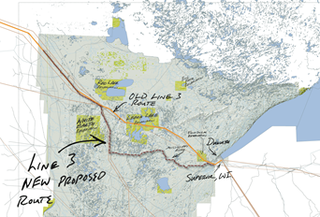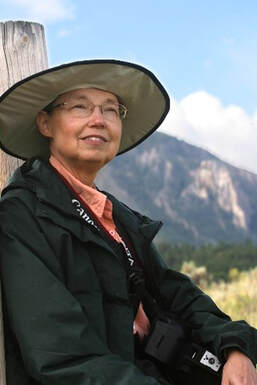 How will Line 3 Impact Minnesota? Kay Slama, Willmar Area Climate Action Group Line 3, the Canadian company Enbridge’s new oil pipeline, will carry tar sands oil across Minnesota to reach refineries in other states. It has been promoted as a big energy source and job creator for Minnesota. However, those claims are disputable, and the pipeline will negatively impact Minnesotans in a number of ways. Will Line 3 give Minnesotans more energy? No, it runs across the state to transport oil elsewhere. Will it employ Minnesotans? Only about 1,500 workers will be hired locally for a few months of construction; then those jobs will disappear. Up to 3000 additional temporary jobs will bring in workers who create “man camps” that have been shown to increase drug use, sex trafficking, and violence. Clean energy already employs many more people than fossil fuels do, and Minnesota can become a leader in clean energy production. Here's a link to a May 29 article on the HealingMN blog with more information on jobs impacts in Minnesota.
The modest gains in taxes and temporary jobs are substantially offset by the environmental harm of the pipeline. More than 1,650 individual leaks have occurred in the U.S. since 2010, spilling more than 11.5 million gallons of oil, and Enbridge has one of the worst safety records of major pipeline companies. Spills hurt local economies, public health, and soils and waters. Tar sands oil, with all the added chemicals necessary to make it flow, creates spills that are even worse than other pipeline spills. The oil sinks instead of floating, so scraping to collect it not only leaves much of the spilled material in place, but also kills vegetation, destroys riverbeds and lake bottoms, and decimates the fish and birds that use the water. Line 3 will cross more than 200 bodies of water, including the Mississippi and Great Lakes watersheds. Northern Minnesota depends on its waters for drinking, crops, and its $12.5 billion tourism economy. The waters endangered by Line 3 include tribal wild rice waters, one of the few remaining rights left to the Ojibwe after treaties took nearly all their land. Wild rice is important to their food and economy, and it is easily killed by pollution of its water. Native fisheries are also threatened, as well as their historic and cultural sites. Minnesotans will feel the negative effects of pollution, no matter where the oil is burned. Tar sands oil is among the worst fossil fuels on the planet, in terms of the amount of energy it produces compared to the amount of carbon dioxide it emits into our atmosphere. Greater amounts of carbon in our atmosphere are causing increasingly disastrous flooding, droughts, storms, temperature extremes, wildfires, glacier melt, and ocean rise. Climate change is contributing to species extinction and epidemics. MN Dept. of Commerce Commissioner Bill Grant testified that Line 3 would result in a 30-year cost to society of $287 billion, and that is without including effects of spills. Line 3 will double the oil carried by the old pipeline, carrying the equivalent of 50 coal plants worth of polluting fuel. This will outbalance the efforts Minnesotans are making to become a clean-energy state. Minnesota power companies are rapidly switching to renewable sources of power, which are becoming less expensive than fossil fuels. They are learning to build battery storage that will get us through storms. The need for fossil fuels—especially ones that pollute as much as tar sands oil—is dropping rapidly, but the infrastructure and impact of this pipeline will last for many decades. A number of action groups (Stop Line 3, Honor the Earth, Sierra Club, MN350, and MN Interfaith Power and Light, among others) are actively protesting to stop the construction that has begun on Line 3. They are pressuring Federal regulators, as well as the banks that are financing Enbridge, to oppose Line 3 construction. Their efforts are evidence that many Minnesotans do not want to accept the substantial amounts of pollution (both guaranteed air pollution and the risk of spills) for what they see as little benefit from the new Line 3 pipeline. They want to lower carbon’s climate change burden on the next generations, not increase it. They believe that the pipeline threatens our air, our water, and indigenous rights, and we should instead build reliable, sustainable sources of energy. The Willmar Area Climate Action Group seeks to take immediate local action to address the urgent issue of climate change and empower our community to support broad-scale solutions. To join, email [email protected].
0 Comments
Leave a Reply. |
| LWV Upper Mississippi River Region | UMRR blog |


 RSS Feed
RSS Feed